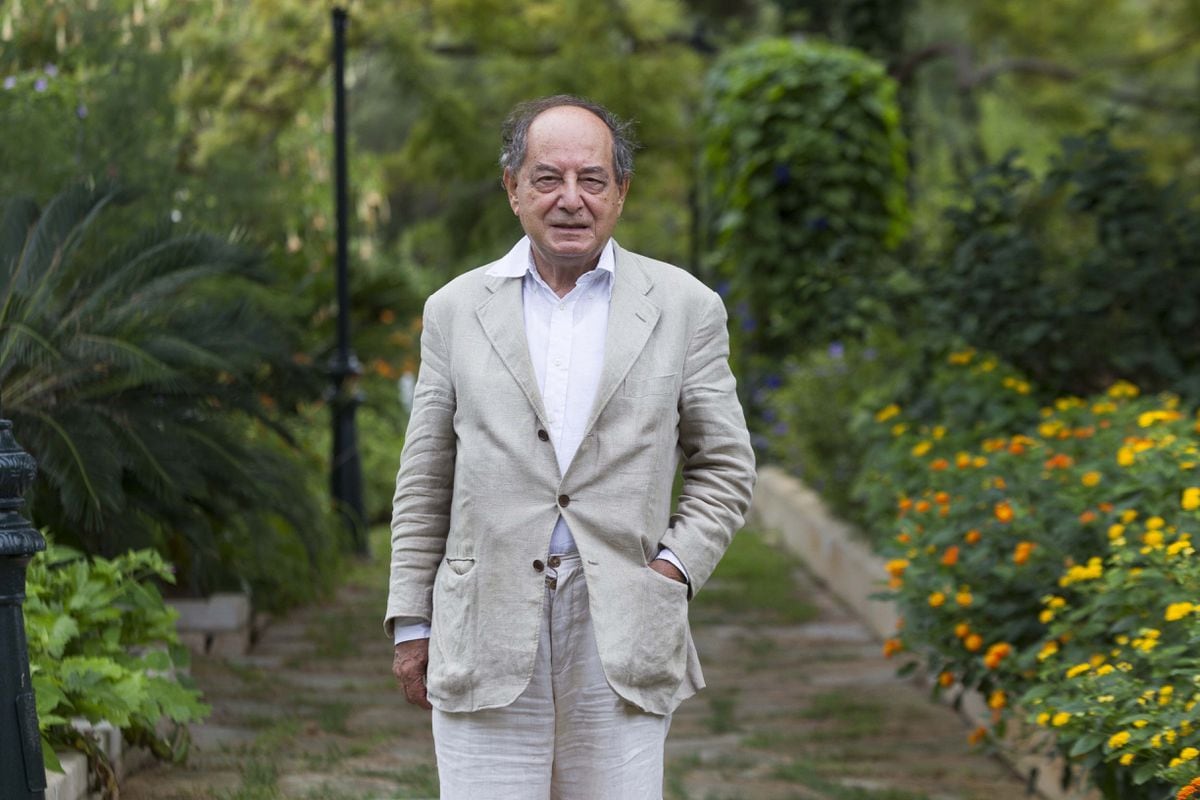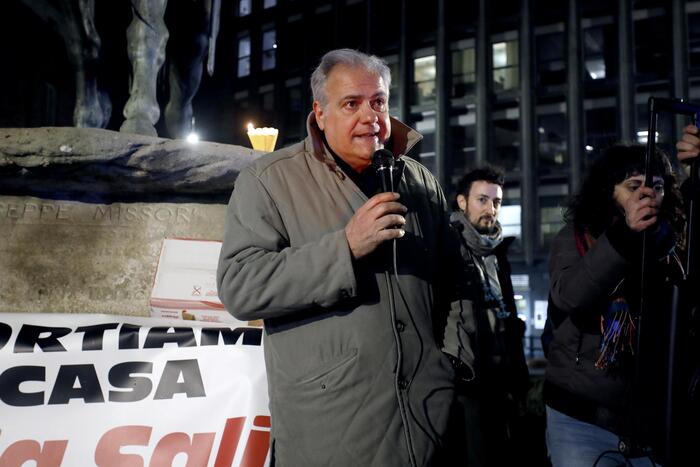Roberto Calasso, an undisputed editorial authority in Europe, died this Thursday in Milan at the age of 80.
He was a writer who defied contemporary syntax to associate his imagination with the most intricate fables of the past and emerge triumphant from his daring.
For a long time he was also the most elegant among those who decided on the quality of others, until he made Adelphi, the publisher he directed, the iridescent platinum meter of European publishing history.
His literary demand, therefore, combined two knowledge, editing and writing, about which he left abundant testimonies, among them the books that he dedicated to publishing and libraries, which, like almost all those he published in Spanish, were edited by his friend Jordi. Herralde in Anagrama.
More information
Roberto Calasso: "The ideology of Amazon is a fatal trap"
"Today there is undoubtedly good literature, but very little really great"
That demand that marked his way of being did not remain only in the different wisdoms that he dominated, but they were part of his appearance, smiling but grim, very demanding, like the old editors and also like the old writers.
He was speeding from place to business.
He was not as authoritarian, in his likes or dislikes, as the most famous of the Italian publishers, Giulio Einaudi, but he had acquired undisputed authority (except for those who received his rejections).
His great friend in Spain, "an accomplice and faithful editor for almost half a century", Jorge Herralde told EL PAÍS after learning of his death that he was a man of extraordinary elegance, "capable of carrying out bold initiatives", such as the very successful literary edition of Georges Simenon, for example, but also of other greats of literature. Herralde also highlights his book
La marca del publisher,
a fundamental work on the world of publishing. “We saw each other every year, except these last two, because we met in Frankfurt and this time there has been no fair. In one of those meetings he came to my booth and noticed a poster that said
Nabokov
Library
. And after two years, his own collection by the author of
Lolita
was already in Adelphi
”.
According to Herralde, Calasso moved away from all fashions "and always showed a very exquisite personal taste". In Spain he was recognized with the Formentor award and in Mexico with which the FIL of Guadalajara dedicates to outstanding publishers, among which Herralde himself has been. "It was," says Herralde, "something unusual: to be both a great writer and a great editor."
The Italian Nuccio Ordine, author of
The Usefulness of the Useless,
also comments with EL PAÍS on Calasso's death: “He has been a great editor who has known how to build an important catalog that has led to the discovery of valuable Italian and foreign authors. A man of authority and also authoritarian, with a very difficult and complicated character ”. Silvia Sesé, Herralde's continuation at the head of Anagrama, says: “He was a great editor capable of maintaining a very successful editorial approach. Open, of the highest level, it introduced a very solid catalog ”.
Elegant and always dressed in the appropriate way for the time or the occasion, he spoke with the precision of the wise, but he was also silent like a thinker who has not yet made the decision on an adjective ... or, in his case, on a book alien. In interviews, which are usually the touchstone of an author, but of an editor as well, he was sparing but sufficient, and he preferred, at the end, to write down what he wanted to say rather than put himself in the hands of other people's improvisations. This is what happened, for example, this last December, when we wanted to interview him for EL PAÍS. Sick or reluctant, he wanted the interview to be with a questionnaire, and it should be about his latest book published by Anagrama,
El cazador celeste.
That book is a sum of what were his 11 books dedicated until then to the mythology of men. His friend and colleague Leonardo Sciascia had said of him that his works "are called not to die." Now that he himself has died, precisely on the centenary of Sciascia, and that his works and his publishing legacy remain, it is worth remembering what Calasso told us when we evoke the distinguished eulogy of the Sicilian author. According to him, Sciascia was distinguished by the "infrequent fact of someone who only said and wrote what he thought."
As for his work itself, and not only that which he had just published in Spain, he was surprised by the discovery of the word as the natural element of literature in his literary career. He had devoted much of his narrative passion to investigating the past wisdom of men, but at that point he did not understand what the term wisdom meant, because he had only “studied its meaning in certain places of antiquity, especially in Greece and India". He cared to say that this inquiry had already led him to write 11 books, some 5,000 pages, “in which there are images that appear and disappear from the beginning. They are synchronous. They should concatenate each other. Each one involves the others ”.
That same description of his work includes the spirit of the editor, who counts the pages as part of the project, not only as a thought but as a book made to be part of the library, which was both his passion and his destiny in both trades. through which he traveled with the intention of honoring literature in its obligation of "precision, like mathematics." “Without precision,” he said, “there is no literature. Even more so if one speaks of prehistory, of which there are jagged bones and flints. And even more so if, as in
El cazador celeste,
theses are developed contrary to those read in manuals and what is seen in natural history museums ”.
He had himself translated his words, which would be published in the interview as if they came from his voice and his hand. That was Calasso, punctual and punctilious, radical as a writer and editor. In that book that we glossed with him there are words that refer to the character of his poetry. We underline them with him as if they were chills: “Who hurts knows”. "To hurt is the particular act of the gods." “The lust that causes suffering”… Regarding his personal participation in the fears or sufferings that he describes, he said: “Not only I, but I believe that everyone participates in those feelings or fears, even those who are not aware of it. The difference lies in the various degrees of consciousness. Which, on the other hand, is an omnipresent theme in my books ”.
Apart from Jorge Herralde and other Spanish publishers of his lineage or of his time, Calasso had relationships and affections in this country that made him a regular not only in the literary but also social media of the eighties. That let us say elusive character that he showed, both in interviews and in appearances and in his own presence, as if he were always leaving, did not exclude from him a true taste for exchange and conversation, where he was at the same time scathing but prudent, as well as gifted with incredible intelligence. He leaves behind two libraries, the one he made with his words and the one he managed to raise up with the words of others like an old ancient sage.


/cloudfront-eu-central-1.images.arcpublishing.com/prisa/OSGEZYSHPFIONDIBR432LV5FBY.jpg)











